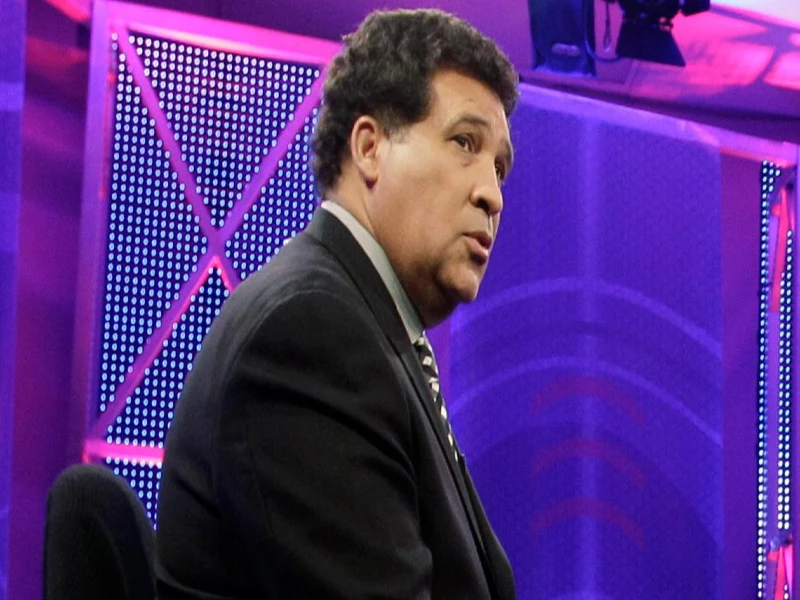Let’s talk about a voice you’ve probably heard a hundred times—but maybe never really noticed. Greg Gumbel. Smooth. Smart. Steady. He’s been behind the mic for decades, covering everything from the Super Bowl to March Madness. And here’s the thing: his voice didn’t just describe the games. It shaped how we experienced them.
I grew up hearing him on TV. And over the years, I started realizing something. Greg Gumbel didn’t just tell us what happened in sports—he helped build sports culture. He made the games feel bigger. More exciting. More real.
Let me show you what I mean.
The Voice That Made Sports Feel Like Home
There’s something comforting about a voice that shows up during your favorite games, year after year. Greg Gumbel was that voice. I remember watching football on a chilly Sunday afternoon, or college basketball during March Madness, and there he was—calm, clear, and always in control.
He wasn’t yelling. He wasn’t trying to be funny or flashy. just… got it. knew how to make the moment feel special.
And honestly, in a world full of loud voices trying to be the center of attention, Greg’s steady tone was different. He respected the game. And that respect? It made you respect it, too.
A Pioneer Without Making a Big Deal About It
Let’s be real—Greg Gumbel is a trailblazer. He was the first African-American play-by-play announcer to call a major sports championship on network TV. That happened during the Super Bowl in 2001. Huge deal. Historic.
But here’s what’s wild—he didn’t walk around acting like he was the first. He just did the work. He let his performance speak for itself.
That taught me something important. You don’t always need to shout about breaking barriers. Sometimes, you just walk through the door… and hold it open for the next person.
Greg Gumbel did that. Quiet strength. And it changed the game.
The Master of the Studio
Not every sportscaster can bounce between being a play-by-play announcer and a studio host. But Greg? He made it look easy.
He was the guy who made pre-game shows and halftime updates actually worth watching. No hype, no drama—just straight-up knowledge and smooth delivery.
He could host The NFL Today and then switch over to March Madness without skipping a beat. That kind of range? Rare.
I used to think studio work was just filler. But watching Greg made me realize: the host sets the tone. If they’re calm and sharp, the show runs like a machine. Greg Gumbel was that engine.
How He Changed the Way We Watch March Madness
Let’s talk about March. The madness. The buzzer beaters. The heartbreak.
Now imagine all that chaos without someone like Greg keeping it together.
From the early 2000s to recent years, he was the face of CBS’s NCAA Tournament coverage. When you turned on the TV to check your bracket, he was the first guy you saw. And the last.
He kept the energy high without being overwhelming. He made it fun but serious. reminded us that, yes, it’s just a game—but it’s a game that matters.
And if you’re like me, you probably remember those tournament moments more clearly because Greg was there guiding you through them.
Keeping It Professional
One thing I really admire about Greg Gumbel—he never made it about himself.
He wasn’t trying to be a celebrity. He wasn’t dropping hot takes just to get attention. stuck to what mattered: the athletes, the plays, the story.
In today’s sports media, that’s actually pretty rare. Everyone’s trying to go viral. Greg? He just showed up, did the job right, and let his work speak loudest.
That level of professionalism? It’s something we should all be taking notes on.
A Voice for All Ages
Whether you were a kid watching your first big game, or a die-hard fan tracking your team’s playoff run, Greg Gumbel felt like the adult in the room.
He didn’t talk down to people. But he also didn’t try to sound “cool” for younger fans. He spoke with respect, clarity, and purpose. And guess what? Everyone understood him.
That’s hard to do—especially in live sports, where the action is fast, emotions are high, and the pressure is real.
But he made it look easy. Every. Single. Time.
Representation That Matters
Now let’s not ignore this part—Greg Gumbel being on that mic mattered in a big way. Especially to people like me.
Growing up, I didn’t see many Black men in major sports media roles. But Greg was there. Every week. Every season.
And he wasn’t the “funny sidekick” or the “loud analyst.” He was the main guy. The one calling the shots. The one running the show.
That kind of visibility? It changes things. It tells kids, “You can do this too.” Not in some fantasy way—but for real.
Greg made that dream feel reachable.
He Knew When to Step Back
Over time, Greg started to slow down a bit. Took on fewer games. Focused on select projects.
And you know what? That’s smart.
He knew the value of timing. He didn’t overstay his welcome. passed the mic when it felt right—but not before delivering years of greatness.
That’s a lesson we all can learn: leave when you’re still on top. Walk away with pride. Let the next generation take over—with your influence still echoing.
What We Can Learn From Greg Gumbel
Here’s what I’ve picked up from years of watching (and learning from) Greg Gumbel:
- Stay calm under pressure. It helps everyone around you.
- Know your stuff. People respect knowledge.
- Don’t chase attention. Let your work shine.
- Respect the moment. Whether it’s a big game or small segment—give it your best.
- Be the pro in the room. Always.
Those aren’t just lessons for sports media. They work in any job, any field, any goal you’re chasing.
Why Sports Need Voices Like His
Think about this: the best sportscasters don’t just tell you what happened. They help you feel it.
They add rhythm. Emotion. Balance. They’re the bridge between the action and the audience.
Greg Gumbel was (and still is) that bridge.
He brought us into stadiums we never stepped foot in. He made us care about teams we didn’t even root for. turned ordinary games into unforgettable experiences.
And he did it all without screaming, without showboating, without making it about him.
That’s rare. That’s legacy.
Final Thoughts: More Than Just a Broadcaster
When people talk about great sportscasters, they often mention the flashy ones. The ones with catchphrases or bold takes.
But when I think of greatness? I think of Greg Gumbel.
He was a rock. A guide. A steady voice in a noisy world. He didn’t just report sports—he respected them. And he made us respect them, too.
So yeah, he was behind the mic. But really? He was behind the moment. Behind the memories. Behind the culture we love so much.
And for that? We owe him more than applause. We owe him thanks.
Thanks for reading. If you want more stories like this—or you’re curious about how sports broadcasting really works—stick around. I’ve got plenty more to share from behind the mic.
Who’s your favorite sports voice of all time?
Let’s talk about it.




